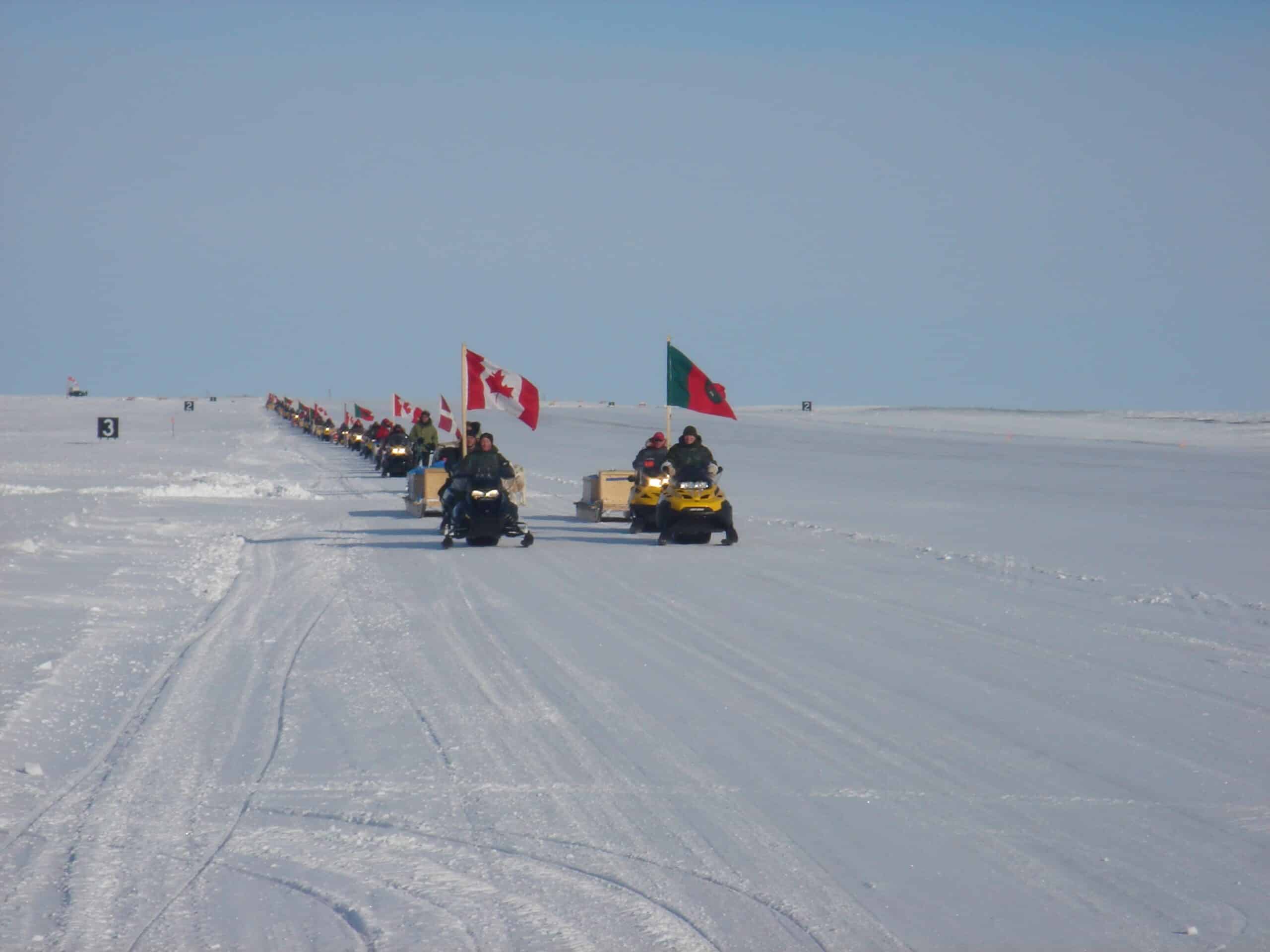The Arctic Institute Colonialism Series 2022: Conclusion

A 2010 training exercise led by the Canadian Rangers–a subcomponent of the Army providing mobile forces to remote areas–in Alert, Nunavut. Photo: U.S. Mission to Canada
Colonialism touches nearly every aspect of the Arctic. From the foreign and imperialist policies of Arctic states to the prioritization of national security threats, from the languages spoken by countries and communities to the very borders defining Arctic spaces, one cannot understand the Arctic without first acknowledging the colonial realities of its past and present.
Contributors to the 2022 Colonialism Series highlight the diverse and lasting effects of colonialism in the Arctic—as well as crucial steps forward in a region of renewed interest. The current era of Arctic exploration and development poses new and critical questions in the contexts of (neo-)colonialism: Can settler institutions in the Arctic, such as the Church of Sweden, navigate reconciliation with local Indigenous populations? Can Arctic nations and stakeholders establish inclusive climate change and development policy that is sensitive to the needs of local communities? And how will stakeholders such as China engage with Indigenous peoples as they explore new interests in the Arctic?
More than anything, the 2022 Colonialism Series identifies the need for Indigenous perspectives to be integrated into contemporary visions of Arctic development to avoid repeating colonial mistakes of the past. Climate and development challenges must be met with interventions appropriate for local communities. Reconciliation with Indigenous groups must include acknowledgement of past human rights violations and increased paths towards self-determination for Arctic peoples. And urban development must feature inclusive and sustainable spaces that are accessible to diverse populations.
As an Arctic security scholar, widespread and increasing interest in the region is an exciting prospect. A growing body of scholarly literature offers novel insights into this critical area and emerging Arctic policy provides evolving research landscapes to study. However, the excitement of contemporary Arctic development must not overshadow the existing realities of the region: The Arctic is the home of many peoples and has been since time immemorial. Political, economic, and cultural activities have effects on this space, even when they are unintended. There is a need to acknowledge and reconcile mistakes of the colonial past and present—and to prevent repeating these mistakes in the future.